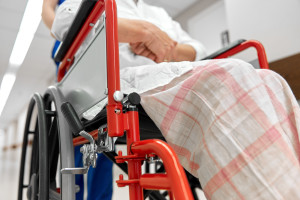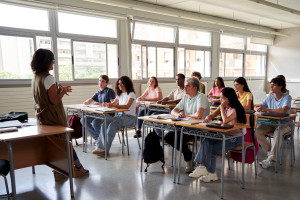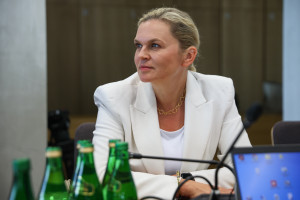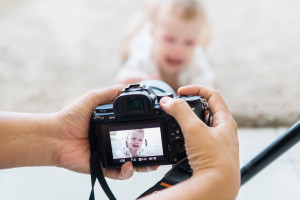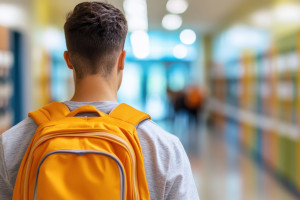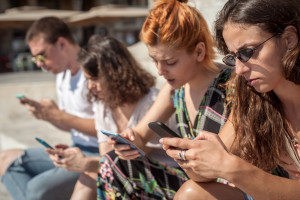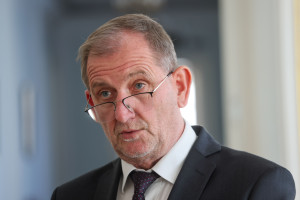Campaigning has begun in schools ahead of September 25th. "This isn't protecting children, it's escaping."

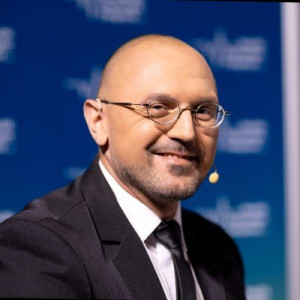 Author: Jacek Wykowski • Source: Rynek Zdrowia, PAP • Added: August 23, 2025 14:30
Author: Jacek Wykowski • Source: Rynek Zdrowia, PAP • Added: August 23, 2025 14:30
September 25th is the deadline for parents and adult students to opt out of health education classes in schools. "Are we really protecting children this way? Health education isn't an ideology. It's knowledge necessary for life," argues former Children's Rights Ombudsman Marek Michalak.
- Giving up health classes may limit access to reliable education and violate children's fundamental rights - points out Marek Michalak
- A new subject in schools will cover key aspects of physical and mental health, including elements of sex education.
- The former Ombudsman for Children's Rights (RDP) believes that supposedly protecting children from "ideology" is an escape from difficult topics. Parents thus expose their children to the risk of them accessing the content they need from harmful sources.
- - These are not times of "doing it because it's the right thing to do", but they should also not be times when a child loses access to important information because adults are afraid of the topic - writes Marek Michalak
- Withdrawing a child from health education bears the hallmarks of acting to their detriment - says Marek Michalak , educator, Chancellor of the International Chapter of the Order of the Smile and former Ombudsman for Children, on social media.
"I'm increasingly hearing about parents/legal guardians being asked to withdraw their children from health education classes. However, it's worth asking: are we really protecting children this way? Health education isn't an ideology. It's knowledge necessary for life," emphasizes Michalak.
He lists what children learn in such classes:
- how to take care of your physical and mental health,
- how to recognize disturbing signals in your body,
- what is hygiene, healthy relationships, assertiveness and safety,
- how their body works, what does puberty mean, consent, boundaries,
- how to avoid addictions, violence and sexually transmitted diseases.
It reminds us that these are not topics "to talk about someday, later", but the foundations of knowledge that a child should acquire gradually and appropriately to their age.
No to ideology, worldview and religion in access to "life" knowledgeIn the opinion of the former Ombudsman for Children, withdrawing a child from health education classes means depriving him or her of access to reliable and verified knowledge, increasing the risk that he or she will seek information from unreliable sources - e.g. on the Internet or among peers, and ultimately weakening his or her ability to make informed, responsible decisions in the future.
"According to the Convention on the Rights of the Child, every child has the right to a comprehensive education that supports their development, health, and well-being . Limiting this right for ideological, religious, or ideological reasons may violate their fundamental rights ," Michalak emphasizes.
He admits that he understands that some parents and guardians have concerns, but in his opinion, the solution isn't to avoid the topic – it's about dialogue and collaboration with schools, teachers, and specialists. "If we truly want to protect our children, let's give them tools that will help them understand themselves and the world. And health education is one such tool," he concludes.
Health education in schools: waiver until September 25As a reminder, health education will replace family life education as of September 1, 2025. The subject will be taught in grades 4-8 of primary school, grades 1-3 of vocational primary school, grades 1-3 of general secondary school, and grades 1-3 of technical school.
In the 2025/2026 school year—contrary to the Ministry of Education's initial announcements— classes will be optional . According to regulations, a parent who does not wish their child to participate in classes must submit a written resignation to the school principal by September 25th. Adult students must submit their own resignation. After this deadline, students will automatically be enrolled in the subject. The decision is final until the end of the 2025/2026 school year.
The Ministry also informed that "it is assumed that the decision to withdraw from classes will be made consciously (due to the organisation of information meetings on classes in this subject) and for this reason , the possibility of withdrawing the resignation regarding participation in classes during the school year is not envisaged ."
Health and Sex Education? What Will Children Really Learn?- Any absences of a student who should have attended classes due to not withdrawing will not have negative consequences for him or her, because the classes are not assessed and do not affect the student's promotion to a higher grade or the student's graduation - explains Joanna Lesińska , legal counsel specializing in education law, in Prawo.pl.
The decision to waive health education was made following protests from some sections of society, including church groups, during the presidential campaign. The change was announced on RMF FM by Education Minister Barbara Nowacka , who argued that "seeing the tensions," she needed to "protect schools from political infighting."
In early December, a protest took place in the capital's Castle Square under the slogan: "Yes to education, no to depravity." The Polish Episcopal Conference declared the new subject unconstitutional. The bishops emphasized that "sexual education, according to the constitution, remains the responsibility of parents, not the state."
One of the chapters of the core curriculum in primary schools is devoted to puberty, and in secondary schools - to sexual health, and it is this content that has caused controversy among a part of society, opposed to "sex education" in schools.
In elementary school, students are expected to learn about various aspects of puberty, including:
- with different growth rates,
- change in silhouette,
- gynecomastia,
- nocturnal emissions,
- the appearance of menstruation - taking into account the irregularities associated with it.
In secondary schools, teaching will include, among others:
- the mechanism of action of various contraceptive methods and criteria for selecting the appropriate one;
- prevention of infections and sexually transmitted diseases,
- places where you can take free and anonymous tests.
The framework assumes that students should also know the definition of the terms: miscarriage and abortion and be able to list the ethical, legal, health and psychosocial conditions regarding termination of pregnancy .
Other chapters of health education cover, among others:
- examination of skin and moles,
- self-examination of the breasts or testicles,
- transplantology, organ donation, bone marrow and blood donation,
- planning meals based on various diets (e.g. planetary, vegetarian, vegan, Mediterranean), using "credible and reliable sources of information".
Health education classes are not subject to assessment and will not affect a student's promotion to a higher grade or their graduation.
"Everyone has the right to make decisions. But it's important that these decisions are conscious and based on facts, not fear or misunderstandings. Health education isn't about imposing an ideology, but rather about building basic knowledge about oneself, relationships, and health. These aren't times of "doing it because you have to," but they also shouldn't be times when children lose access to important information because adults are afraid of the topic," concluded Marek Michalak.
Copyrighted material - reprint rules are specified in the regulations .
rynekzdrowia


